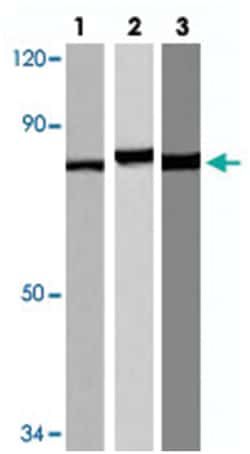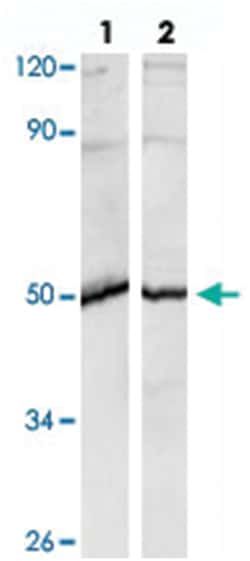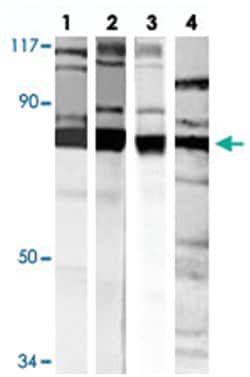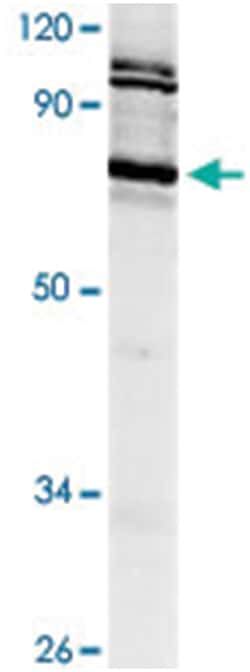STAT3 (phospho S727), Rabbit anti-Human, Mouse, Rat, Polyclonal Antibody, Abnova™
Manufacturer: Abnova Corporation
Select a Size
| Pack Size | SKU | Availability | Price |
|---|---|---|---|
| Each of 1 | 89-126-399-Each-of-1 | In Stock | ₹ 87,220.00 |
89-126-399 - Each of 1
In Stock
Quantity
1
Base Price: ₹ 87,220.00
GST (18%): ₹ 15,699.60
Total Price: ₹ 1,02,919.60
Antigen
STAT3
Classification
Polyclonal
Description
Rabbit polyclonal antibody raised against synthetic phosphopeptide of STAT3.
Formulation
In PBS, pH 7.2 (0.09% sodium azide)
Gene Alias
APRF/FLJ20882/HIES/MGC16063
Host Species
Rabbit
Purification Method
Antigen affinity purification
Regulatory Status
RUO
Gene ID (Entrez)
6774
Target Species
Human, Mouse, Rat
Form
Liquid
Applications
Western Blot
Conjugate
Unconjugated
Dilution
Western Blot (1:500-1:1000) The optimal working dilution should be determined by the end user.
Gene
STAT3
Gene Symbols
STAT3
Immunogen
Synthetic phosphopeptide corresponding to residues surrounding S727 of STAT3.
Quantity
100 μL
Primary or Secondary
Primary
Test Specificity
STAT3 (phospho S727) polyclonal antibody detects endogenous levels of STAT3 protein.
Content And Storage
Store at 4°C. For long term storage store at -20°C.Aliquot to avoid repeated freezing and thawing.
Description
- The protein encoded by this gene is a member of the STAT protein family
- In response to cytokines and growth factors, STAT family members are phosphorylated by the receptor associated kinases, and then form homo- or heterodimers that translocate to the cell nucleus where they act as transcription activators
- This protein is activated through phosphorylation in response to various cytokines and growth factors including IFNs, EGF, IL5, IL6, HGF, LIF and BMP2
- This protein mediates the expression of a variety of genes in response to cell stimuli, and thus plays a key role in many cellular processes such as cell growth and apoptosis
- The small GTPase Rac1 has been shown to bind and regulate the activity of this protein
- PIAS3 protein is a specific inhibitor of this protein
- Three alternatively spliced transcript variants encoding distinct isoforms have been described
- [provided by RefSeq



